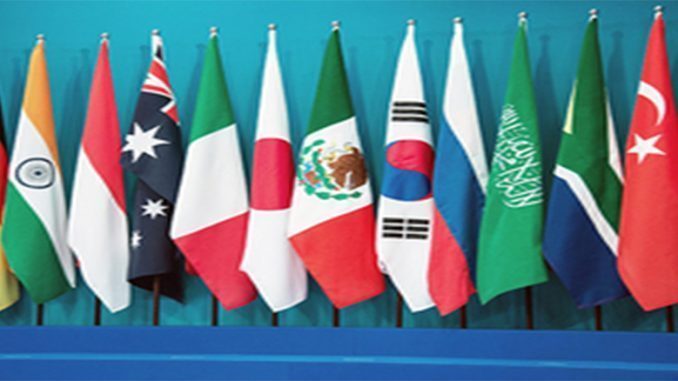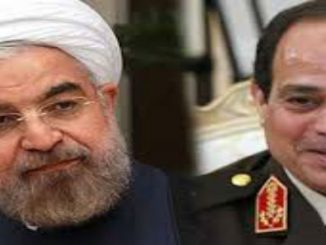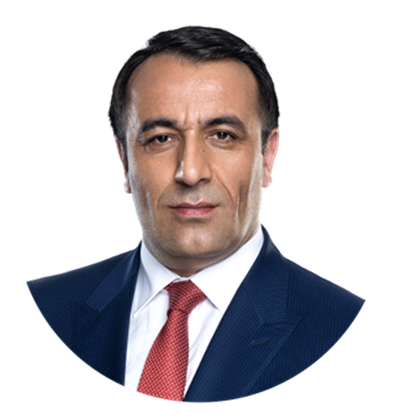
 BY: BURHANETTIN DURAN*
BY: BURHANETTIN DURAN*
During the G20 Summit in Hamburg, world leaders have to find answers to two important questions: What is the reason behind the damaged relations between member countries and how is the extent of their support to the fight against global terrorism?
The 2017 G20 Summit takes place in Hamburg, Germany this week. Meeting just one week after the controversial G7 Summit in Sicily, the event has a highly critical and contested agenda.
For example, many observers expect U.S. President Donald Trump and German Chancellor Angela Merkel to clash over global economic growth, climate change, free trade and the refugee crisis. On the one hand, with a campaign slogan of “America First” summarizing his policy priorities, Trump advocates “fair trade”. On the other, Merkel, whose country survived the 2008 financial crisis without a scratch, has been a strong supporter of free trade.
As a matter of fact, Trump’s criticism of the “liberal world order” primarily targets Germany and China. Ahead of the G20 summit, the German chancellor indirectly criticized the Trump administration by arguing that protectionism and isolationism would be grave mistakes. At the same time, she continues to try and persuade European countries to adopt an equally liberal view. In Hamburg, Merkel’s antagonism of Washington could appeal to China and India as well. Under the circumstances, it would not be an exaggeration to suggest that the 2017 G20 Summit will go down in history as a showdown between Trump and Merkel. Another interesting fact about the Hamburg summit is that Trump and Russian President Vladimir Putin will meet in person for the first time.
There is no doubt that the negotiations and discussions between the G20 leaders this week will provide valuable insights into what lies ahead. President Recep Tayyip Erdoğan, too, has traveled to Germany with a full agenda. In the G20 Summit’s margins, Erdoğan will meet world leaders to discuss a number of issues including the revival of Turkey’s relations with the European Union, the peaceful resolution of the Qatar crisis, the establishment of de-conflicting zones in Syria, the potential military action against Afrin and weapons purchases.
His meeting with Merkel was critically important as well. Unfortunately, certain developments have taken place in recent days that have fueled tensions between Ankara and Berlin. Having been criticized by Ankara for failing to extradite Gülenist Terror Group (FETÖ) operatives, the German government decided to relocate its troops from the İncirlik Air Base to Jordan. Ahead of the Hamburg summit, Berlin also blocked the Turkish president’s plans to meet his compatriots living in Germany – a move that Erdoğan considered a violation of fundamental freedoms and which he has strongly criticized. Finally, the European Parliament on Thursday voted in favor of a controversial report recommending that membership talks with Turkey, which kicked off in October 2005, be temporarily suspended. A similar resolution was passed in November 2016. Although the European Parliament’s decision is non-binding, it shows that there is an effort by the Europeans to arbitrarily interfere in Turkish democracy and this goes against recent attempts by Ankara and Brussels to fix their relationship.
In addition to calling for an immediate and official suspension of membership talks with Turkey if the constitutional amendments adopted in April 2017 go into effect without changes, the report urged Ankara to stop trying to control the Turkish diaspora in Europe. Perhaps the only good thing about the European Parliament report is that the rapporteurs took the time to condemn last summer’s coup attempt and acts of terrorism by the PKK and to recommend that European governments impose a ban on PKK symbols. However, the overall tone of the report is unsatisfactory and the failure to address key policy issues, including the extradition of coup plotters to Turkey and the need to crack down on the PKK’s European network, is disturbing.
Traveling to Hamburg against the backdrop of severe tensions, Erdoğan will undoubtedly express Turkey’s concerns about the above-mentioned issues. Whether Mrs. Merkel can afford to fix Turkey-EU relations ahead of the upcoming parliamentary elections remains unclear. However, Germany’s short- and long-term interests require that Berlin find a way to work with Turkey and Erdoğan. In order to ignore the European Parliament report and continue her cooperation with Turkey on illegal immigration, the German chancellor will need to find new financial resources and take concrete steps regarding visa liberalization. Facing serious challenges Trump and Putin, Merkel has no choice but to reduce tensions with Erdoğan through concrete action.
*Burhanettin Duran is a Turkish columnist who writes for Daily Sabah Turkish newspaper.



